Providoor gives chef Shane Delia a new career
Before Covid, Shane Delia was a successful Melbourne chef. Now he’s a businessman on a national platform that’s helping restaurants stay afloat.
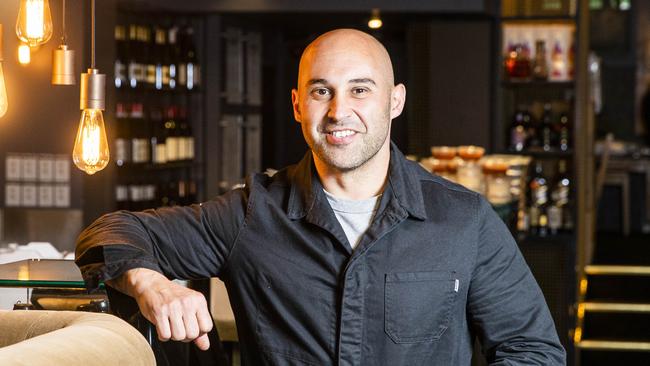
Father’s Day 2020, according to the man behind restaurant meal delivery platform Providoor, was the lowest point of the whole pandemic nightmare Melbourne’s open-close-open-close restaurant industry has been through over the past 20 months.
Shane Delia, a man used to eating rather well, was left with a difficult-to-digest slice of humble pie on his plate.
“So basically, the restaurants took as many orders as they could,” says the chef, restaurateur and nascent entrepreneur, the wisdom of hindsight proving particularly valuable. “They couldn’t keep up, which impacted on the delivery, and it imploded, majorly.”
Put simply, unanticipated demand and ill-formed logistical systems behind Providoor – a then-new business – left hundreds of Victorians hungry after orders were hours late or, in some cases, not delivered at all. Delia says it was a business and PR disaster.
“It was a really bad experience for everybody. I was being attacked on every front. People abusing me on social media. I was on the front page of the paper, the radio. (But) we’re a marketplace. We don’t actually have control of how much the restaurants sell. We facilitate.
“And if anything, it was probably the experience that needed to happen for us to understand the enormity of our business and what it could be.”
Indeed, Providoor has defied all expectations, morphing from single restaurant rescue plan to fully fledged logistics/marketing business in its own right in quick time and, in the process, helping save a number of Melbourne and Sydney restaurants from disappearing down the plug hole.
Numbers are difficult to source. However, Sydney’s OTTO says its OTTO a Casa menu is clocking up between 500 and 600 meals every week via the platform. It’s one of 80 restaurants in the two major cities currently on the Providoor list, including several of the most recognisable restaurateurs in the country.
Two years ago, Delia probably assumed he’d be remembered for his restaurants, like Maha. Or several SBS television series, which escalated him into the minor league of celebrity chefs. Maybe even his books. But Providoor looks like being the Maltese-Australian chef’s unlikely, lasting legacy.
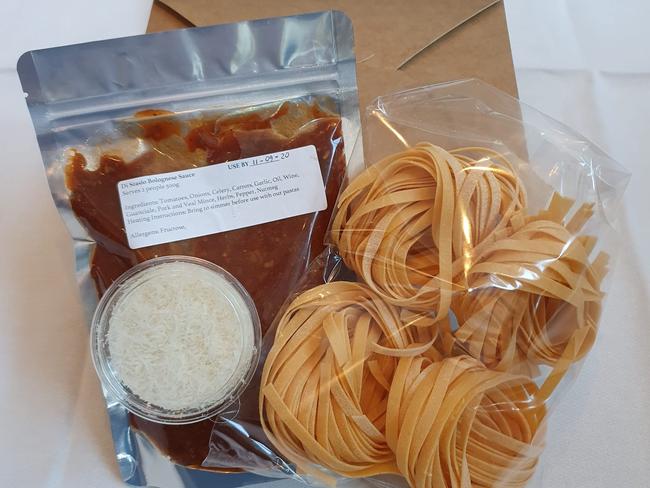
His rapidly expanding restaurant meal-kit delivery business is a long way from the romance of dining, the frat-house camaraderie of a chef brigade under the pressure of service, the magic environment of a well-run restaurant at full tilt. But then, the romance of the restaurant industry has withered on the vine over the past 20 months for many in the sector, and Delia, like many of his many friends in the industry, was looking, if not for a way out, then another way to apply his skill-set to a business with longevity and one less vulnerable to the whims of lockdowns.
And in Providoor, a salve for the short-term symptoms of Covid may just have morphed into a cure. Or at least a vaccine. The business is booming. It has become the chef’s main game. And some of the country’s best-known restaurants rely on the platform for their very survival.
“Supernormal is doing 3000 lobster rolls a week,” Delia laughs, apparently not quite believing it himself. The legendary Supernormal roll retails at $18; do the math. Supernormal’s Andrew McConnell did a Providoor cooking class in October 2020 – with punters buying an ingredients kit through Providoor, and they sold more than 1200 tickets. Providoor did 30,000 Father’s Day orders in 2021, each with an average of two people per order. The platform has, to date, delivered more than 600,000 orders in just 15 months.
Dollar figures, unsurprisingly, are not on the table. But the business now employs 14 full-time with 12 more casuals in customer service.
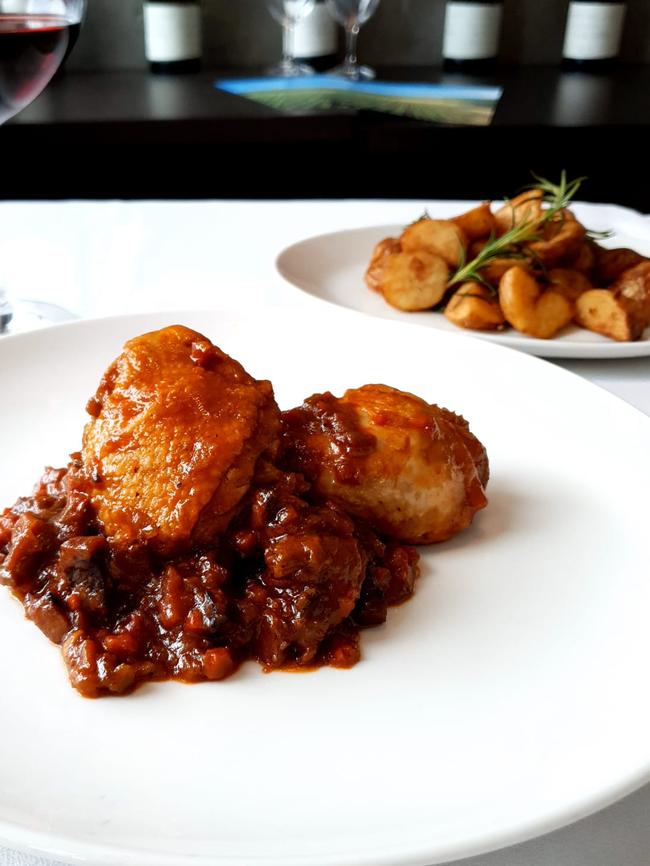
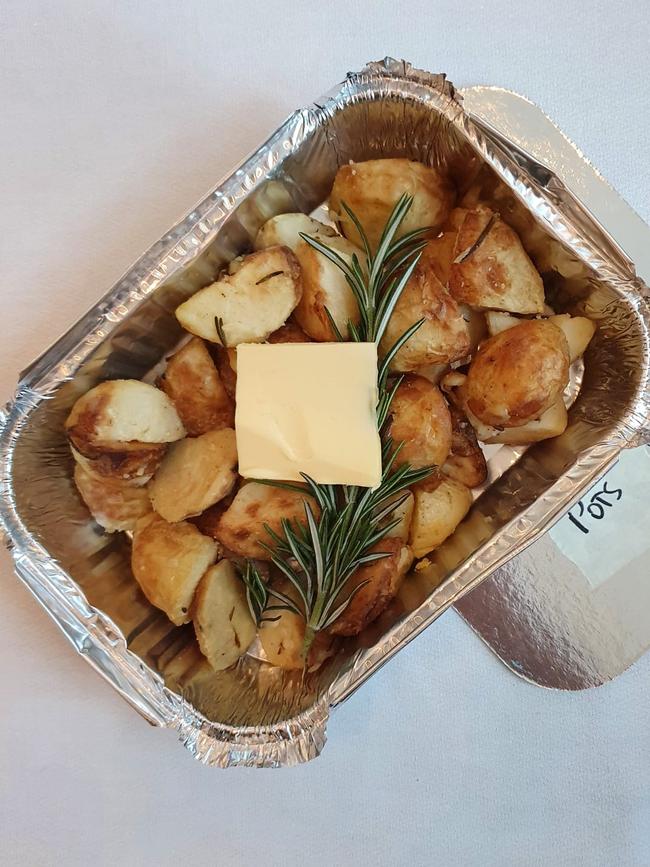
Like so many business ideas that escalated from thought bubble to action last year, Providoor came about as a knee-jerk to the first of many shutdowns in Melbourne that left the restaurant industry dumbstruck. The initial idea was to cut out third-party delivery platforms, such as Deliveroo, and home-deliver from Delia’s small group of restaurants directly. Soon, however, the restaurateur’s considerable circle of friends in the sector were talking to him about how they could tap into his network.
As he told The Australian back in April 2020: “You can’t hold on to yesterday. It’s gone … If we treat this as a stopgap until the sun comes out again, we’re doomed. How long can a two- or three-hat restaurant serve takeaway … What does it do to your brand? We don’t want people to come back to the restaurant and remember the time they had it as takeaway.”
It proved to be the tip of the iceberg.
Delia quickly realised the delivery of pre-cooked, so-called ready-to-serve restaurant food wasn’t the answer. No, restaurant-prepped, finish-at-home dishes with wow factor and restaurant-branded cred was the answer.
Before long, Providoor had become a who’s who of the Melbourne restaurant scene, a curated list of suppliers that, like an elite school’s waiting list, way too many people wanted to be on than places available. Providoor created its own brand, with brand values built around the movers, the shakers, the hot, the hospo brethren. It attracted a lot of publicity.
First Melbourne, then Sydney. Brisbane is next, in November. Maybe next, the world. They’re looking into it.
“I think it has changed my career forever,” says Delia, 41, who, like fellow celebrity chefs George Calombaris and Gary Mehigan, of MasterChef fame, graduated from the powerhouse training ground that was Melbourne’s Sofitel in the late ’90s and early noughties to forge a career first with Calombaris’s then-burgeoning business before striking out on his own, at Maha.
“I’ll always be a restaurateur, and I want to open more restaurants, I really do,” he says, “and I’m hoping the success Providoor is hopefully going to have will enable me to open better restaurant experiences as well. Because I've always dreamt of having bigger, more brilliant restaurants. But you know, money is a real thing.
“I’m not looking to Providoor as a way to get out of hospitality. If anything, I’m looking at it as a way to get further in. But I’m not one-dimensional any more.”
Providoor, he says, takes 98 per cent of his time these days and “in the future I see it as a bigger part of my life than it already is”.
“It’s put a big spotlight on the business of food as opposed to the romance of food. In a restaurant, the romance of food takes over, and we need that still, it’s the glitter that attracts everybody. But the business of food is making sure you can transfer that romance to the home, and that’s about menu engineering, it’s not romantic at all.”
Since buying out partners and becoming his own boss in 2013, the chef has shown a keen appreciation of the importance of diversified nests for his eggs. Offshoot restaurants; a kebab joint; joint ventures at airports; catering deals for major events; multiple TV series with SBS and the associated publishing deals.
Unsurprisingly, it’s all been about food. And so is Providoor, but only up to a point.
“Now we’ve got acquisition marketing and retention marketing, data analysts and product managers. We’re in the final stages of putting a CEO on. I know what I'm good at and I know what I'm not good at and I'm not the person that's going to be able to get the full juice out of this lemon,” he says candidly.
“That person is going to be a strategic appointment who understands marketplaces and how to grow businesses to achieve the outcomes we need to. And that's definitely not going to be me.”
Delia’s job is the curation of suppliers, and he concedes that’s been political.
“It’s a little bit the same as curating a list for a food guide. It's a similar thing. Why am I in? Why am I out? It’s really hard to define that, because you’re trying to curate a community of like-minded brands that can feed off each other.”
It’s fair to say there are restaurants that aren’t part of it but would like to be.
“In saying that, our focus was always premium and special occasion, but we’ve just spent a heap of time and money on think tanks and surveying customers, and it seems a big part of our target audience don’t just want special occasion; they want midweek meals, they want spontaneous things.
“If the existing suppliers can’t fulfil that, we’ll look to others.”
Clearly, Delia believes his is a hitherto untapped niche that fits somewhere between the full service of a restaurant experience and the “I’m hungry, deliver it now” market serviced by the likes of Uber Eats and Deliveroo. What for so many of his peers has been the proverbial annus horribilis has turned into one that has reshaped his career and life.
And the high point of this otherwise savage period for his industry?
“It’s been being able to put tens of millions of dollars back into the hospitality sector in Australia,” says Delia. “It’s been getting text messages from your peers at 1am saying, ‘Mate I don’t know how we would’ve kept the lights on without Providoor.’ It’s looking into the faces of my chefs and waiters and knowing they haven’t missed one week’s pay, this whole time.”
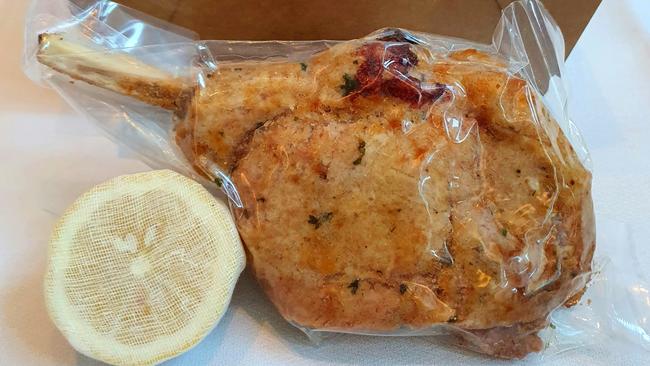
-
Getting all the ingredients right
A key to Providoor’s traction has been not only the calibre of suppliers – from a classic French terrine en croute from Hubert in Sydney to a Supernormal bao bun with duck – but the curation of the offer. Getting the balance of restaurants and culinary styles right.
Making sure the offer from, say, Di Stasio, doesn’t conflict with that of Grossi a Casa, for example. And making sure there are both individual items and complete meals offered by each supplier.
That, for example, Sydney favourite Chat Thai offers a Premium Organic Banquet for four at $247 as well as a no doubt incendiary som tum green papaya salad, at $22.
“We are a food service marketplace,” says Shane Delia. “A traditional market place isn’t invested in its suppliers as partners as we are. We manage logistics on their part, we teach them how to manufacture the product we market on their behalf, we do the whole education piece, we project their revenue … It’s a logistics model that works.”
That means assembly and finishing instructions, nutritional information and dietary warnings. It’s complex stuff.
At the end of the day, the promise is restaurant-quality food you finish yourself at home, at a fair price. A different segment to either dine-in, or home-delivered takeaway. The marketplace seems to approve.

To join the conversation, please log in. Don't have an account? Register
Join the conversation, you are commenting as Logout